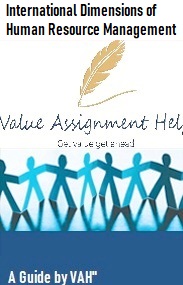Can I use Colloquialism in my assignments?
Colloquialisms are informal phrases used in everyday conversations. These are typically based in a region, community, or group. Colloquialism adds flavour to our everyday speech and verbal communication, but also finds a special place in writing. These phases increase content relatability and connectivity with the audience. However, their usability in an academic context, such as academic assignments, is debatable. The following article explores the stance of colloquialism in academic writing and identifies whether colloquialism is acceptable in your assignments.
Understanding Colloquialism
Colloquialism definition: Colloquialisms are informal words, phrases, or expressions used in everyday language. Colloquial words are conversational words and phrases, such as “gonna” instead of “going to”. These are region-specific and are different from slang words.
Difference between colloquial words and slang words:
Colloquial and slang words might seem identical but differ significantly. Colloquial words are more formal than slang. In Britain, “Whatcha doin’ this morning?” is a colloquial phrase, whereas a slang word can be “Pour me a cuppa tea”.
On one hand, the phrase “Pour me a cuppa tea” is used by the working class of London (Cockney Areas), Northern England, and the East End of London. On the other hand, the colloquial phrase, “Whatcha doin’ this morning?” is commonly used in Britain irrespective of their age or culture.
Slang usage is defined by the age, color, or culture of the users, whereas colloquial words are commonly used and understood by the users of a particular region, irrespective of their background and ethnicity.
Colloquialism in Writing
The use of colloquialism in academic settings is debatable. While some creative writing assignments might benefit from the casual tone of colloquial phrases, formal and semi-formal content must be free from colloquial words.
Using colloquial phrases in informal texts, such as creative writing, makes a connection with the readers. Users find colloquialism more engaging and relatable in comparison to the formal writing styles. Hence, writers often use such language to immerse readers and establish a better connection to a particular region, era, or culture.
For Instance, D. Salinger’s The Catcher in the Rye uses rebellious colloquial phrases such as “hope to hell” and “cut out the bull” to signify teenage voices.
In Their Eyes Were Watching God by Zora Neale Hurston, Native African American English phrases like “Ah ain’t triflin’ wid nobody” represent the rural Black community of 1930s Florida. In Britain, "Blimey" defines signs of exclamation and "Knackered" shows a state of shock.
Colloquialisms bind with an emotion, a sentiment of belongingness, and collective identity, making it a powerful tool for writers to bridge linguistic gaps.
However, the use of colloquial words is limited by their applicability. Such phrases are region-specific, and hence cannot be used everywhere. The most common applications of colloquialism are informal letters, social media, and personal emails, where the writer wishes to build a connection with the reader. In the academic context, such as research papers, case studies, and formal documents, the use of colloquial words undermines the credibility of the writing.
Colloquialism in Academic Assistance
The use of colloquial words in academic content is not encouraged. Colloquial texts make a subject matter look less professional. However, there’s no harm in subtly adding these texts to enhance your academic scores. For example, the use of informal analogies or metaphors can help balance academic professionalism with a colloquial tone. Using just a hint of an informal phrase/word/context also helps students get more connected to their study material.
As the leading assignment help service, Value Assignment Help doesn’t encourage colloquialisms in academic writing. We strictly preach a formal, precise tone for academic background. Colloquialism, however, can be used in informal settings, such as script writing. Using colloquial texts depends upon the client’s requirements, and value assignment help provides both types of assignment writing services.
Tips on using Colloquialistic texts without overdoing it
1. Balance is key: Colloquial words should be used carefully in any form of content. Even in informal settings, where its use is permitted, it should not be overused.
2 Contextualize- Since colloquial texts are demographic-based, sometimes, users might not understand the writer’s context, limiting the content’s reach and readability.
3 Purposeful Use- Colloquialism shall only be used on a requirement basis. These phrases shall not be used to make your content more “cool”.
4 Knowing your Target Audience- Curating informal expressions should be done keeping in mind whether your audience will be able to understand and connect to them. For this, the demographic knowledge of your audience plays a crucial role.
Conclusion
To sum up, colloquial language is a crucial aspect of writing as it provides the context, credibility, and depth of narratives. It combines cultures and connects people with readers. Accessibility to colloquial language, therefore, enables the penetration of messages by writing that goes through diverse audiences and deeper links into the relationship between readers and the text.














No Comments